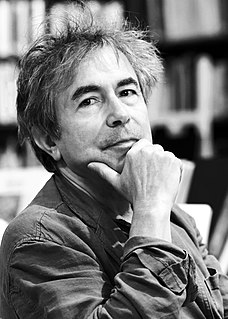A bureaucrat is a member of a bureaucracy and can compose the administration of any organization of any size, although the term usually connotes someone within an institution of government.

René Grousset was a French historian, curator of both the Cernuschi and Guimet Museums in Paris, and a member of the prestigious Académie française. He wrote several major works on Asiatic and Oriental civilizations, with his two most important works being History of the Crusades (1934–1936) and The Empire of the Steppes, a History of Central Asia (1939), both of which were considered standard references on the subject.

Henri Paul Gaston Maspero was a French sinologist and professor who contributed to a variety of topics relating to East Asia. Maspero is best known for his pioneering studies of Daoism. He was imprisoned by the Nazis during World War II and died in the Buchenwald concentration camp.
Joseph Henri Marie de Prémare was a Jesuit missionary to China. Born in Cherbourg, he departed for China in 1698, and worked as a missionary in Guangxi.

Émmanuel-Édouard Chavannes was a French Sinologist and expert on Chinese history and religion, and is best known for his translations of major segments of Sima Qian's Records of the Grand Historian, the work's first ever translation into a Western language.
Étienne Paul Marie Lamotte was a Belgian priest and Professor of Greek at the Catholic University of Louvain, but was better known as an Indologist and the greatest authority on Buddhism in the West in his time. He studied under his pioneering compatriot Louis de La Vallée-Poussin and was one of the few scholars familiar with all the main Buddhist languages: Pali, Sanskrit, Chinese and Tibetan. His first published work was his PhD thesis: Notes sur le Bhagavad-Gita. - In 1953, he was awarded the Francqui Prize in Human Science.

Jean-Baptiste Du Halde was a French Jesuit historian specializing in China. He did not travel to China, but collected seventeen Jesuit missionaries' reports and provided an encyclopedic survey of the history, culture and society of China and "Chinese Tartary," that is, Manchuria.
George Soulié de Morant, born 1878 in Paris, died 1955 in Paris, French scholar and diplomat. Soulié de Morant worked several years in the French diplomatic corps in China, where he served as French consul in several Chinese cities. He is mainly known for his role in introducing acupuncture in the West and for his translations of Chinese literature.

Shennong Bencaojing is a Chinese book on agriculture and medicinal plants. Researchers believe the text is a compilation of oral traditions, written between about 200 and 250 CE. The original text no longer exists but is said to have been composed of three volumes containing 365 entries on medicaments and their description.
Jacques Gernet was an eminent French sinologist of the second half of the 20th century. His best-known work is The Chinese Civilization, a 900-page summary of Chinese history and civilization which has been translated into many languages.
Bureaucracy refers to both a body of non-elective government officials and an administrative policy-making group. Historically, a bureaucracy was a government administration managed by departments staffed with non-elected officials. Today, bureaucracy is the administrative system governing any large institution, whether publicly owned or privately owned. The public administration in many countries is an example of a bureaucracy, but so is the centralized hierarchical structure of a business firm.
The Tientsin Accord or Li–Fournier Convention, concluded on 11 May 1884, was intended to settle an undeclared war between France and China over the sovereignty of Tonkin. The convention, negotiated by Li Hung-chang for China and capitaine de vaisseau François-Ernest Fournier for France, provided for a Chinese troop withdrawal from Tonkin in return for a comprehensive treaty that would settle details of trade and commerce between France and China and provide for the demarcation of its disputed border with Vietnam.
Séraphin Couvreur was a French Jesuit missionary to China, sinologist, and creator of the EFEO Chinese transcription. The system devised by Couvreur of the École française d'Extrême-Orient was used in most of the French-speaking world to transliterate Chinese until the middle of the 20th century, after what it was gradually replaced by pinyin.

François Jullien is a French philosopher, Hellenist, and sinologist.

Henri Cordier was a French linguist, historian, ethnographer, author, editor and Orientalist. He was President of the Société de Géographie in Paris. Cordier was a prominent figure in the development of East Asian and Central Asian scholarship in Europe in the late 19th and early 20th century. Though he had little actual knowledge of the Chinese language, Cordier had a particularly strong impact on the development of Chinese scholarship, and was a mentor of the noted French sinologist Édouard Chavannes.
Édouard Constant Biot was a French engineer and Sinologist. As an engineer, he participated in the construction of the second line of French railway between Lyon and St Etienne, and as a Sinologist, published a large body of work, the result of a "knowledge rarely combined."
François-André-Adrien Pluquet was a French theologian and philosopher. Best known for his Dictionary of Heresies (1762), he also wrote treatises on determinism, sociability and luxury.
Stéphanie Balme is the Dean of Sciences Po College (Bachelor), a permanent research fellow at CERI and professor at PSIA/Sciences Po and the Euro-Asia Campus/Sciences Po.
Georges-Albert Puyou de Pouvourville was a French orientalist, mystic, poet, and translator. He was born August 7, 1861 in Nancy, France and died December 30, 1939 in Paris.
Michèle Pirazzoli-t’Serstevens (1934-2018) was a French archaeologist and art historian, specialising in the material culture of early China.







